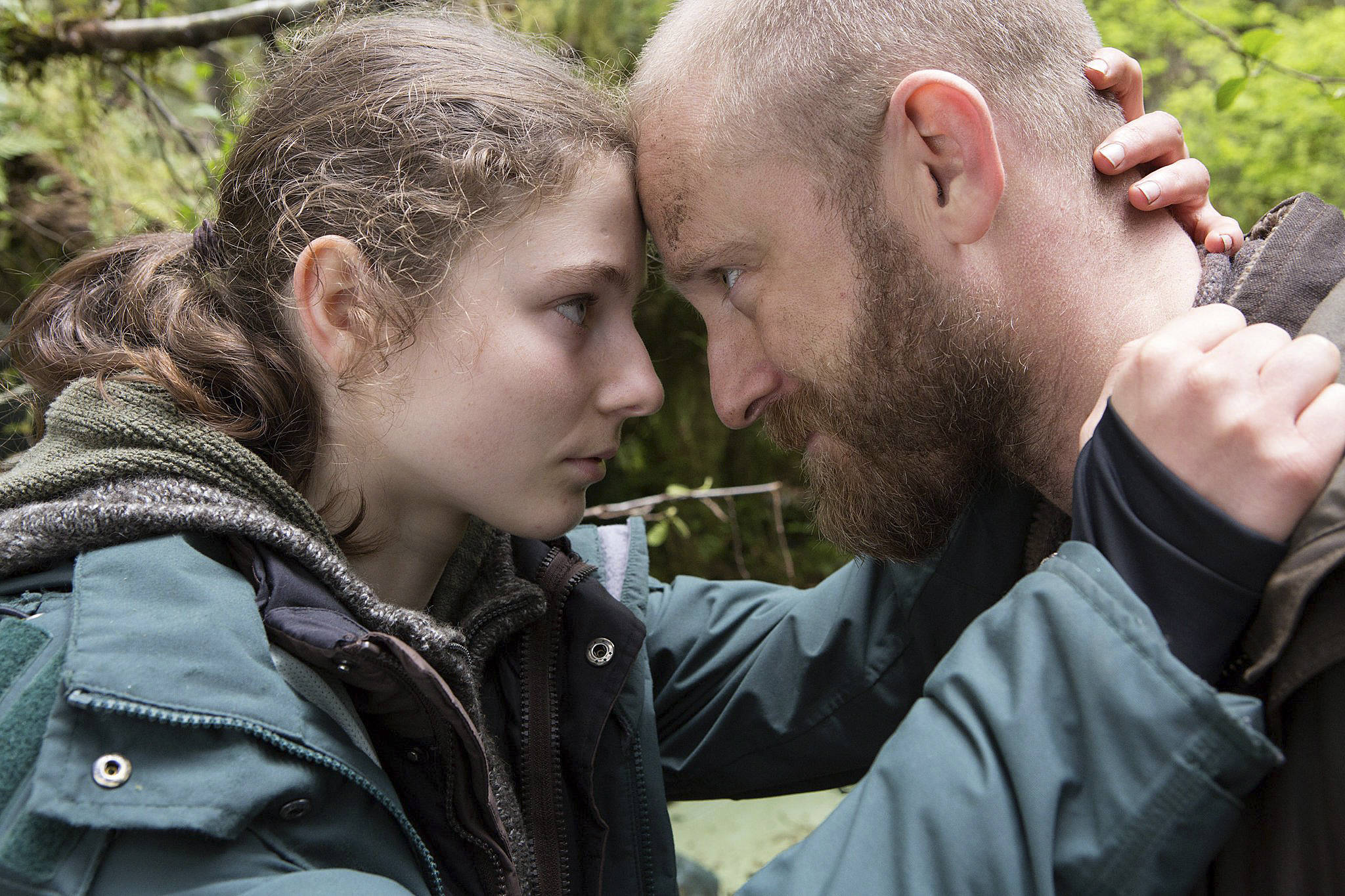The first thing that strikes you in Leave No Trace is the density of the Pacific Northwest forest—all that enveloping greenness. People live in these woods, swallowed up by the choking undergrowth. And that’s the way they want it. The movie’s title, usually employed as an anti-littering motto, refers to a main character’s desire to vanish from society, to exist on his own terms and then disappear.
The forest in question is actually a park just outside Portland; it’s close enough to walk into the city for supplies. The disappearing man is Will (Ben Foster), a veteran with some degree of PTSD. What complicates his retreat from the world is his fierce bond with his adolescent daughter Tom (Thomasin Harcourt McKenzie, a New Zealander), who lives with him in the woods. They hunker down in their tent, build fires when they need to, and stay out of sight. The end of this idyll coincides with Tom’s wistful desire to have a more normal, settled life—a life that would be unbearable for her father.
That’s the gist of director Debra Granik’s first narrative feature since 2010’s Winter’s Bone, the strikingly original American folk classic that thrust little-known Jennifer Lawrence to prominence. This time, Granik and producer (and Seattle native) Anne Rosellini adapt Peter Rock’s novel My Abandonment, and while the story’s outcome may never really be in doubt, the beautifully observed details of this heroine’s journey are heartbreaking.
For instance, a lesser movie would have created villains out of the Portland bureaucrats who process homeless people—administering IQ tests and temporarily separating father and daughter. But here, they’re human beings doing their difficult jobs; decent people, actually. Everybody means well, and that makes the situation sadder.
When Will and Tom are “placed” at a prefab rural house, we’re not meant to sneer at the situation. For Tom, it’s a wonderfully stable, clean home. But Will can’t hack it. The job handed him is honest work, and yet … he’s cutting down Christmas trees at a farm. What could be more remote from his need to be swaddled by the forest than this industrial method of harvesting holiday decor? This pain is deep-set in Foster’s performance, which—given his scarcity of dialogue—he expresses mostly through his eyes. In his high-pitched early work, Foster was a real Roman candle, but in recent years (Hell or High Water, for instance), he’s evolved into a very effective under-actor.
Leave No Trace is really about Tom, who wrestles with her loyalty to her father and her obvious, conflicting need for a roof and walls. In McKenzie’s wonderful performance, Tom is wary about expressing her wants, but you can see the little glimmers of hope and relief flash across her face when she thinks they might settle. It’s a terrific portrait of how personality emerges in a young person; some of Tom’s manner is clearly modeled after her father’s stoicism, yet her own distinctiveness tries to break out. At one point Tom tells her dad, “Same thing that’s wrong with you isn’t wrong with me,” to which he responds simply, but completely, “I know.” This movie distills its purpose in small, precise helpings; like someone living off the land, it’s terribly specific about its choices. Each one counts.
Leave No Trace
Opens June 29 | Regal Meridian | Rated PG








